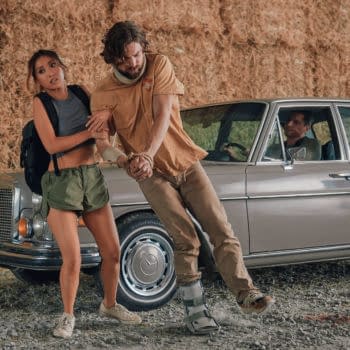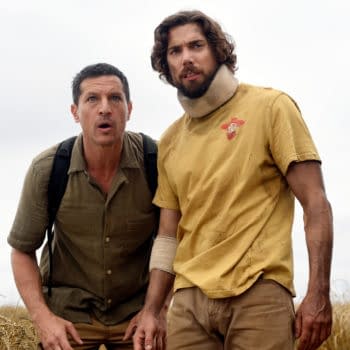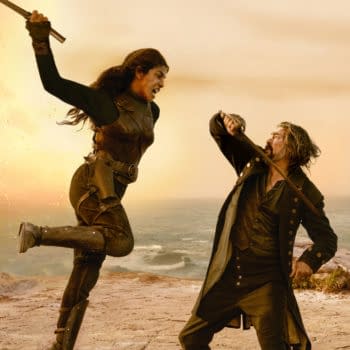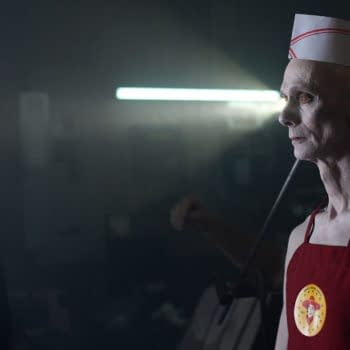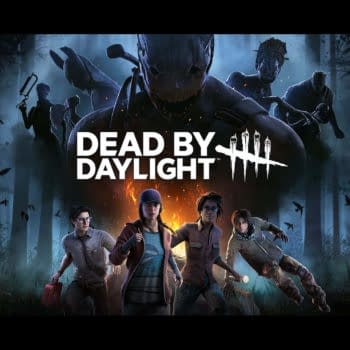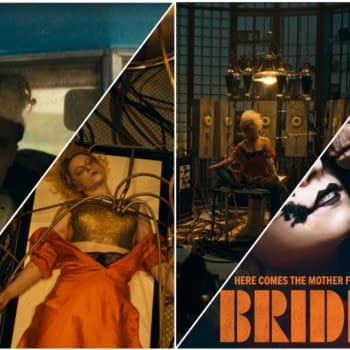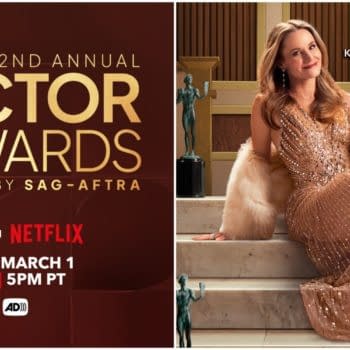Posted in: Exclusive, Interview, Movies | Tagged: Decal Releasing, exclusive, interview, Julianna Baggott, Keith Bunin, lucy hale, nat wolff, Peter Hutchings, Steve Almond, Which Brings Me to You
Which Brings Me to You Director on Bringing Hale-Wolff Rom-Com to Life
Director Peter Hutchings (The Hating Game) spoke to us about reuniting with stars Lucy Hale and Nat Wolff in Decal's Which Brings Me to You.
Article Summary
- Peter Hutchings reunites with Lucy Hale & Nat Wolff for the rom-com adaptation.
- The director highlights the actors' chemistry & workshop process pre-filming.
- Keith Bunin's screenplay evolves from a novel of letters into a cinematic story.
- Supporting cast praised the script, creating a compelling, character-driven narrative.
Peter Hutchings always wants to get the most from his actors to let their organic chemistry play off each other. A golden opportunity came his way in adapting Steve Almond & Julianna Baggott's 2006 book Which Brings Me to You: A Novel in Confessions to life thanks to his stars Lucy Hale, Nat Wolff, and screenwriter Keith Bunin. The film follows two romantic burnouts, Jane (Hale) and Will (Wolff), who are immediately drawn to each other at a mutual friend's wedding. After a disastrous hookup in the coatroom, the two spend the next 24 hours together, trading candid confessions of messy histories and heartbreak on the off chance that this fling might be the real thing. The Hating Game director spoke to Bleeding Cool about his history with both actors, bringing Almond and Baggott's story to the big screen, how the story resonated with him and the cast, and his influences.
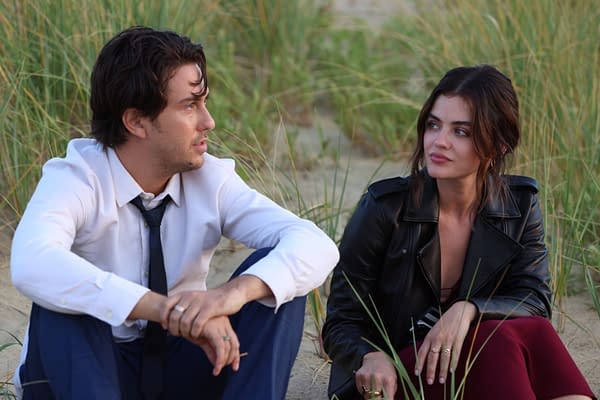
Which Brings Me to You: Peter Hutchings on Lucy Hale and Nat Wolff's Organic Chemistry
Bleeding Cool: What intrigued you about 'Which Brings Me to You?'
Hutchings: It was the characters. I fell in love with them because of their histories, and they're charming, messy, and human. I was on the edge of my seat reading the script, wanting to know what would happen, rooting for them, and hoping that they would be able to find a sliver of happiness. When I got to the end of the script, I told myself that it would be a special movie if I could give an audience the experience of reading the script.
How did it come down to getting Lucy and Nat in the roles of Jane and Will, and how do they work so well together?
I had finished shooting 'The Hating Game,' which also starred Lucy, and we were looking for another movie to work on together. I sent it to her as soon as I came on to this project. She loved it as much as I did, and then Nat, who I've known for years, his first movie [Peace, Love & Misunderstanding] was also my first. I was the director's assistant on that one, and we've stayed in touch over the years. We wanted to work together, and this was a great opportunity. Once the two of them were on, we spent much time, the three of us, workshopping the script, dialog, characters, and the relationship between them. When we showed up to the movie, the two of them were off to the races, and we had a great time shooting. The two of them are wonderful.
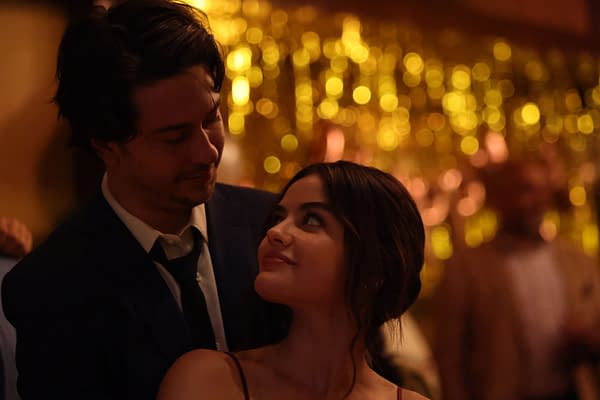
Can you explain how you brought Steve and Julianna's story to life and how Keith adapted it?
Steve and Julianna wrote the book this movie is based on. They wrote it as an epistolary novel, so a novel in letters. Julianna took the role of Jane, and Steve took the role of Will, and they would write these letters back and forth to each other. The story evolved from there, and then Keith, who wrote Pixar's 'Onward,' adapted it into a screenplay. He's a wonderful writer, and it evolved once the actors came on, and I came on becoming what you see here.
What was the process of getting the cast together, like Britne [Oldford], Genevieve [Angelson], Alexander [Hodge], and John [Gallagher Jr]?
It starts with the material. When you have good material, everyone's going to respond to it. There was such a warm reception for the screenplay with John Gallagher. I'm such a big fan of his, and he came on. He said, "I haven't done a movie in a year and a half, but this spoke to me." It was [also] like that with Britne, Genevieve, Alex, Ward [Horton], and the rest. Everyone connected with the characters that were playing but also with the bigger story that we were telling. This is Nat and Lucy's movie right there; every other actor we named they were on for one to two days of the shoot. They have their story within a story, but everybody knows we're all serving the purpose of this bigger story. Everybody was game and on board for that mission.
Was there any scene that exemplified playing to both Nat and Lucy's strengths together that stood out during production?
Every scene of theirs played to their strengths, whether it's some of the more humorous scenes. This rapid-fire old rom-com dialog could be a scene from His Girl Friday (1940) or the more dramatic stuff. I'm so excited for Nat and Lucy's fans to see this movie and to see these new sides of them. Both run the gamut. Any scene between the two of them was an absolute pleasure. The final scene of the movie, which had left such an impression on me when I read the script, and I was so excited to shoot when we finally got to it. I won't give anything away, but the way their performances, lighting, and all the teams came together beautifully. That was satisfying for me.
What are some of the creative influences in your life that helped shape your style of directing?
First and foremost, my parents shaped everything in my life. In terms of filmmakers, I'm drawn to filmmakers from Billy Wilder, Sidney Lumet, and Rob Reiner. These directors approach the material on its terms and try to find the best way to tell that story. "What's the best way to bring this story to life?" In my work, I try to take each story on its own terms and find the best way to shoot it instead of starting with, "These would be cool shots or a cool look for the movie," and applying it. I'm more drawn to those movies that, at the same time, are character, and performance-based but also cinematic.
Decal's Which Brings Me to You is available in theaters.






